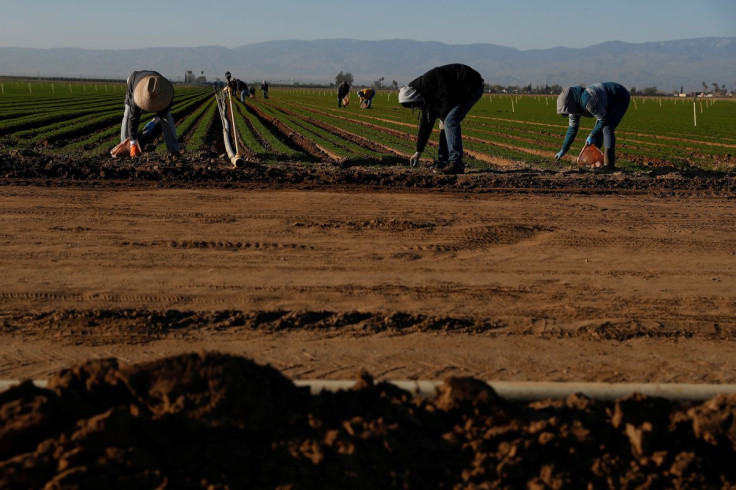Eliminating Silos In Agriculture: How An End-To-End Supply Chain Solution Enables Food Security And Sustainability

According to a National Agricultural Statistics Service (NASS) report, the number of agriculture farms in the U.S. stood at almost 2 million in 2022, making agriculture one of the largest and most critical industries in the nation. The importance of food production has been highlighted in recent years, especially during the COVID-19 pandemic. With food supplies being horrifically low, people started wondering, "What steps can we take to balance supply and demand once and for all?"
The typical agriculture supply chain involves several stakeholders starting from farmers to brokers and distributors, to retailers and consumers. Each step requires multiple decisions, posing farmers and retailers with risks and uncertainties like food waste, unpredictable yields, and many more troubles of the complex agriculture industry. In response to systemic issues, high-tech services have been proposed as a cure-all, but companies are lacking an all-in-one agnostic farm-to-shelf solution.
The global farm management software market is anticipated to reach a revenue of $24.24B by the end of 2035, up from a revenue of $3.43B in 2022. That presents a 17.70% growth, setting the stage for precision solutions, such as Produceplan, to shine. Tim Colin, co-creator of Produceplan, has been an operator in the fresh produce brokerage for over 30 years. Over that time, he founded Sostena to alleviate fragmentation between stakeholders in agriculture and provide structure to an industry that has deeply subjective procedures.
When food is low in supply, society often assumes that producing more is the best solution. "Agricultural planning needs to exist to provide food when and where it's required. While we may struggle to provide enough product at times, we won't be able to alleviate industry issues by focusing on boosting production," says Tim Colin. "To tackle unnecessary food waste and other issues that are at the forefront of our minds, agriculture needs to find a system that allows all stakeholders, whether farmers, brokers, or retailers, to collaborate, level supply and demand, and then begin addressing the topic of sustainability and food security."
Produceplan is an end-to-end supply chain solution exclusively designed for agriculture and fresh produce. The platform empowers supply chain participants to identify demand, connect it to supply, monitor crop growth, and sell products to consumers with full traceability and accountability. When Produceplan's full suite of services is leveraged by a grower, vendor, or retailer, users can significantly boost their bottom line while ensuring consumers have access to the products they need.
While Tim and his team were developing the Produceplan platform, he prioritized accessibility above all. By creating an all-in-one affordable platform that ultimately resolves the foundational problem of miscommunication between stakeholders while also streamlining business operations, Produceplan addresses major problems plaguing the current supply chain. It balances the playing field for all industry players, large or small, giving them the tools they need to become profitable and responsive to supply and demand. As a result, the pitfalls of operating in fresh produce or agriculture are thoroughly addressed, enabling pressing issues like sustainability to be considered.
Although agriculture is a critical industry, it hasn't experienced the innovation and digital transformation it needs. Produceplan provides hope for this sector to advance its operations and consider future integrations that will increase efficiency, safety and security. Because of the scale of challenges, the company is looking for strategic investors to provide financial and industry-relevant support. Produceplan has had interesting conversations with numerous investors intrigued by the company's impact-oriented structure.
With over 30 years of experience, Tim Colin was able to pinpoint detrimental issues in the food supply industry, offering an end-to-end solution that targets vital problems, and makes way for future advancement. By combining his expertise with his undying passion for environmental sustainability, Sostena is committed to transforming fresh produce and agriculture as a whole to ensure the safety and security of society.
"Business operations in agriculture and fresh produce are very siloed. There's a tremendous amount of potential for added efficiency, but what Sostena did differently than others operating in this sector is look at the bigger picture. While there are numerous problems worth our attention, we created Produceplan as a holistic approachto the foundational problem of siloed stakeholders. By making these concepts transparent to all users and infusing ERP and IoT features, Produceplan is a turnkey solution that enables the industry to become more efficient, safe, and ready to handle advances our food system desperately needs," shares Tim.
© Copyright IBTimes 2024. All rights reserved.











